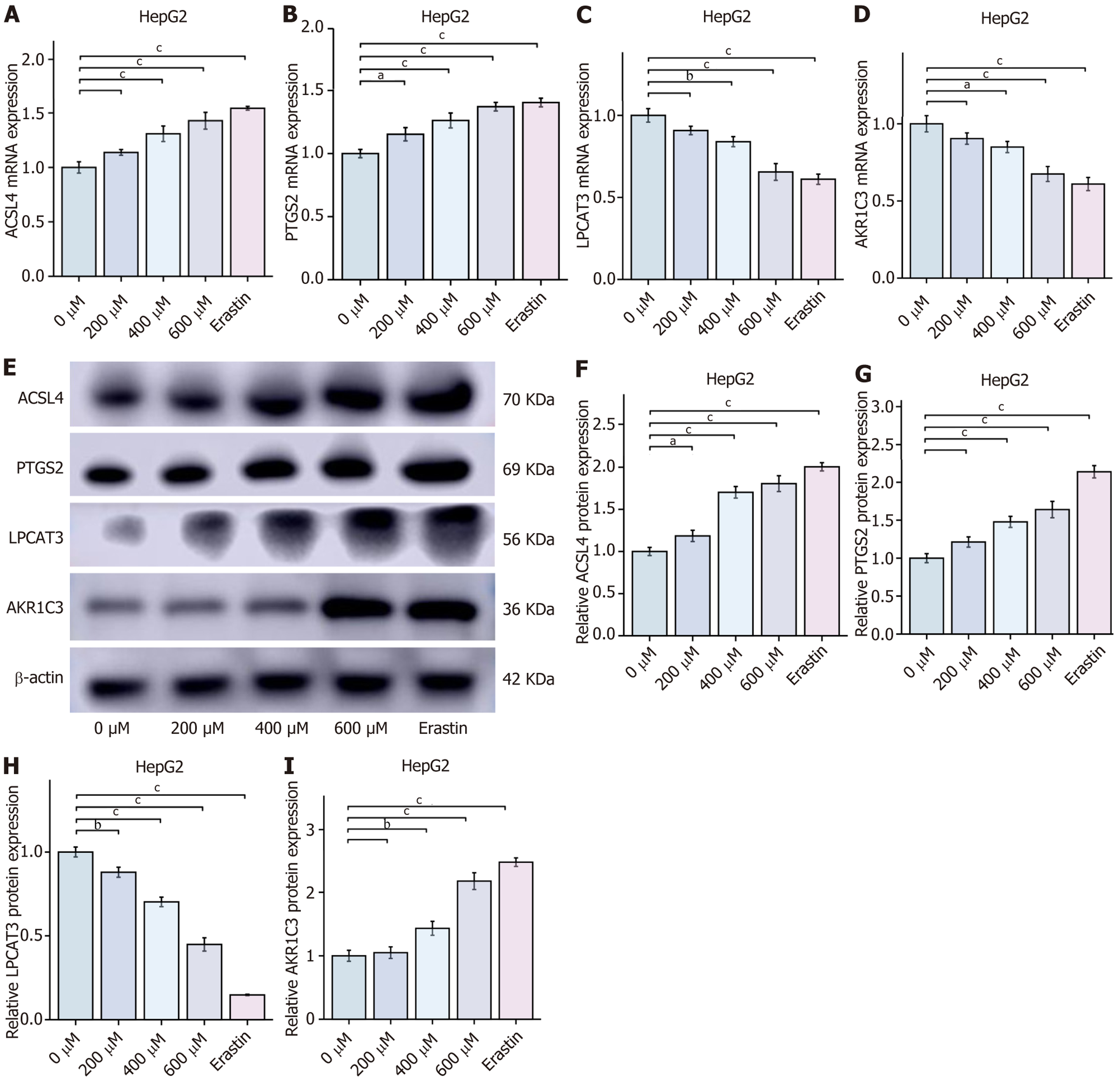Copyright
©The Author(s) 2025.
World J Gastrointest Oncol. Mar 15, 2025; 17(3): 98844
Published online Mar 15, 2025. doi: 10.4251/wjgo.v17.i3.98844
Published online Mar 15, 2025. doi: 10.4251/wjgo.v17.i3.98844
Figure 7 The mRNA and protein expression in chlorogenic acid-mediated reprogramming of arachidonic acid metabolism through prostaglandin endoperoxide synthase 2/aldo-keto reductase family 1 member C3/glutathione peroxidase 4 pathway induces ferroptosis in hepatocellular carcinoma cells (mean ± SD, n = 3).
A-D: Quantitative real-time polymerase chain reaction analysis of aldo-keto reductase family 1 member C3, prostaglandin endoperoxide synthase 2, acyl-coenzyme A synthetase long chain 4, and lysophosphatidylcholine acyltransferase 3 mRNA expression in HCC cells; E-I: Western blot analysis of aldo-keto reductase family 1 member C3, prostaglandin endoperoxide synthase 2, acyl-coenzyme A synthetase long chain 4, and lysophosphatidylcholine acyltransferase 3 protein expression in HepG2 cells. aP < 0.05, bP < 0.01, and cP < 0.001 compared to the 0 μmol chlorogenic acid group. ASCL4: Acyl-coenzyme A synthetase long chain 4; PTGS2: Prostaglandin endoperoxide synthase 2; LPCAT3: Lysophosphatidylcholine acyltransferase 3; AKR1C3: Aldo-keto reductase family 1 member C3.
- Citation: Wu L, Chen HY, Zhang JT, Yang RY, Wang ZB, Xue PS, Peng W, Li KX, Gao WH, Zeng PH. Chlorogenic acid induces hepatocellular carcinoma cell ferroptosis via PTGS2/AKR1C3/GPX4 axis-mediated reprogramming of arachidonic acid metabolism. World J Gastrointest Oncol 2025; 17(3): 98844
- URL: https://www.wjgnet.com/1948-5204/full/v17/i3/98844.htm
- DOI: https://dx.doi.org/10.4251/wjgo.v17.i3.98844









